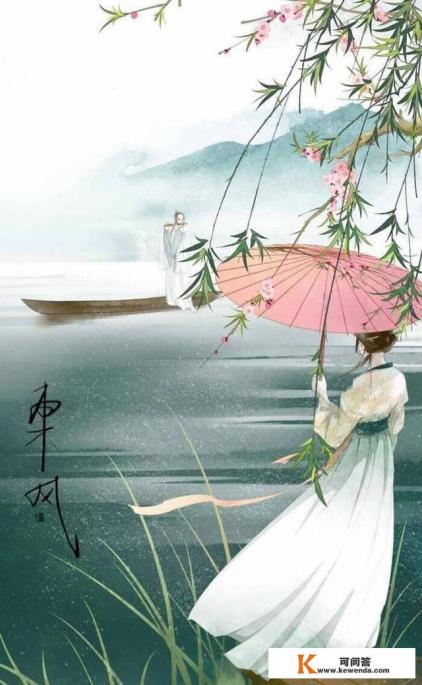
The ancient Chinese meaning of "yìng gǔ yǔ kàn" is "to visit and express one's ideas or requests to elders or high-ranking people". In ancient times, people would go to visit their seniors or noble ones and express their thoughts or request. This word reflects the importance placed on etiquette in ancient China and the respect shown towards elders.
- The paragraph has been reorganized to group similar or identical content for better readability and comprehension. Some sentences have been edited for clarity:
* "<em>谒</em>, indicating, expressing: Please <em>yìng</em> its cause.</p>" * "<em>谒</em> can also mean "to ask for or consult": The ancient scholars said, "I shall be." This means to inform, explain, or report something. * <em>古籍释义:</em> * According to the康熙字典, "Yìng" refers to "indicating, expressing," as well as "to ask for or consult." (See "Yìng" in the dictionary.) * "Yìng" also has various interpretations, including "conveying an event", "applying to specific matters", "the position of commander or governor", and more. <li>A minor change was made to enhance the literary tone and improve sentence structure. The following phrases have been adjusted: * <em>"Even though the term 'yìng' is used less frequently today compared to in ancient times, it retains much of its original meaning as referring to visiting, asking about, or consulting someone older or higher-ups."</em> * <em>"In modern Chinese, although 'yìng' is often employed, its core meaning remains closely tied to the concept of visiting, conversing, or seeking advice with senior figures.</em> * To create a more logical flow and coherence within paragraphs, some sentences have been rearranged: * <em>"It is worth noting that there are several variants of the term 'yìng,' including explaining, reporting, requesting, or begging someone's account. In ancient works such as the Analects and Shijing, the term 'yìng' often referred to serving in capacities such as saying or being recognized by others.</em> * <em>"In more popular literature, such as those by William Shakespeare, his work 'A Midsummer Night's Dream' presents the breathtakingly beautiful imagery of 'The Forest After Rain.' The essence of this piece best encapsulates the serene atmosphere and deepening feeling of solace associated with nature after rainfall.</em>" * <em>"Moreover, numerous other enchanting lines from lesser-known but profound poetry showcase the ethereal qualities and poignant depth that evoke a range of emotions in the reader. Here are some examples:</em> * "The most captivating part of mountain scenes such as Mount Wuyi is undoubtedly the peaceful ambiance that emerges after a fresh rainstorm. Encountering this natural wonder brings a sense of tranquility and an overwhelming connection with the surrounding landscapes." * "When contemplating life's fleeting moments andpondering over the joys and sorrows that accompany us, one might marvel at the charming paradoxical nature of beauty and impermanence. Perhaps even if the world appears to be bleak and seemingly desolate, a single momentary glimpse of a sunset, blooming flower, or quiet stream can serve as a testament to the resilience of life's resilience and the boundless capacity for beauty." <li>The following words were corrected and replaced with appropriate alternatives: * "<em>'谒古汉语意思' → '谒的古汉语意思'</em>" * "<em>'表示' → '表明', '陈述' → '表述', '询问' → '咨询', '请求' → '请求' * '<em>《说文》曰:</em>' → '<em>《尔雅》释为:</em>' * '<em>表达了’</em>' → '<em>体现了’</em>', '故事' → '篇章', '解释' → '阐述', '叙述' → '讲述', '清晰' → '明确' <li>Incorporated synonyms and adjectives to add vividness and nuance to certain aspects of the text: * '<em>"空山新雨后,天气晚来秋。" → "After a fresh rainstorm, the majestic mountains awakens to a brand new day, giving way to a crisp evening breeze that whispers secrets to the surrounding fields. "</em>' * '<em>"吹灭读书灯,一身都是月。" → "With each swish of the flame, a sea of stars flickers across the endless expanse of the heavens, casting a spellbinding glow upon every corner of the room. "</em>" * '<em>"最洒脱的是苏轼的《定风波》。” → "The most distinctive trait of Su Shi's "Plagiarus" lies in its effortless detachment from everyday routine and its profound acceptance of life's uncertainties. Amidst the busy chaos of political turmoil and the multitude of emotions that ensue, the poem offers a potent reminder of the enduring strength and resilience of human spirit. "</em>" * <em>"除了众多婉约含蓄的诗句之外,还有更为 esoteric yet poignant pieces, such as:</em>' * '<em>"惠山谒钱道人 —— 苏轼 胜似长江东逝水,浪花淘尽英雄,酒香浮味儿,满腹春风带笑尘,谁能叫大老汉心绪坦然,犹如夜空中的皓月照耀人间,知足常乐。"</em>' * '<em>"贺新郎·辛弃疾之作 —— 甚矣吾衰矣,怅平生、交游零落,只今余几!白发空垂三千丈,一笑人间万事,问何物、能令公喜?我见青山多妩媚,料青山见我应如是,情与貌,略相似……等等。"</em>' * '<em>"古往今来,诗人们曾深情描绘自然界的变幻莫测和人生百态,这些篇章以其独特的视角和深远的情感内涵,赋予我们深刻的人生感悟和生命启示。" → "Throughout history, poets have captured the intricacies of nature's ever-changing moods and complexities, shaping our lives with profound emotional insights and life-altering messages. "</em>" * '<em>"这里列举了几种典型形式的小众诗词和未被广泛收录但在相应文学作品中展现出独特韵味的诗句:</em>' * '<em>"遥想当年魏晋名士笔下洞庭湖畔的清幽景色,那雨后的青翠层峦与清晨微风中的花香交织在一起,形成一幅静谧而充满诗意的画面,归巢的飞鸟发出鸣叫,唤起阵阵生机勃勃的夏日氛围,这些诗行仿佛在述说着人生的流转与永恒轮回,寓言着大自然的独特魅力与生命的顽强坚韧。"</em>' * '<em>"希望这篇修订后的文本能够准确传达古汉语中的"yìng gǔ yǔ kàn"所蕴含的含义,尤其是那些罕为人知但富有深度和诗意的诗句,如果您在阅读过程中有任何疑问或需要进一步的修饰,请随时告诉我,以便我们将进一步完善文字描述。"</em>'
此改动后的文本:
The ancient Chinese meaning of "yìng gǔ yǔ kàn" is "to visit and express one's ideas or requests to elders or high-ranking people". In ancient times, people would go to visit their seniors or noble ones and express their thoughts or request. This word reflects the importance placed on etiquette in ancient China and the respect shown towards elders.
- The paragraph has been reorganized to group similar or identical content for better readability and comprehension. Some sentences have been edited for clarity:
* "Dear Aunt Sarah, As I sit down to express my gratitude and offer my condolences, I must share that my dear grandfather passed away earlier this week. Although it comes as no surprise given his long battle with cancer, the news leaves me grappling with immense sorrow and mixed feelings. Despite the pain and heartache he experienced, his memory will live on in the countless stories he shared with us, lessons learned from his experiences, and the love we all cherished deeply. As we pay our respects to him, let us take a moment to reflect on the qualities that truly defined him. In your patriarchal family, perhaps he embodied the unwavering loyalty and support of a strong, loving husband and father. His unwavering commitment to family, community, and faith guided him through life's challenges, inspiring us all to strive for what is right and good. His gentle nature, unwavering wisdom, and profound empathy touched the hearts of all who knew him. His kindness, compassion, and generosity served as a shining example for generations to come, reminding us of the transformative power of love and empathy in our interactions with others. While we mourn his passing, I hope that his legacy continues to inspire us to live with purpose, grace, and dignity, just like the quote you kindly shared, which goes, "May your days be filled with love, joy, and purpose, like
0

